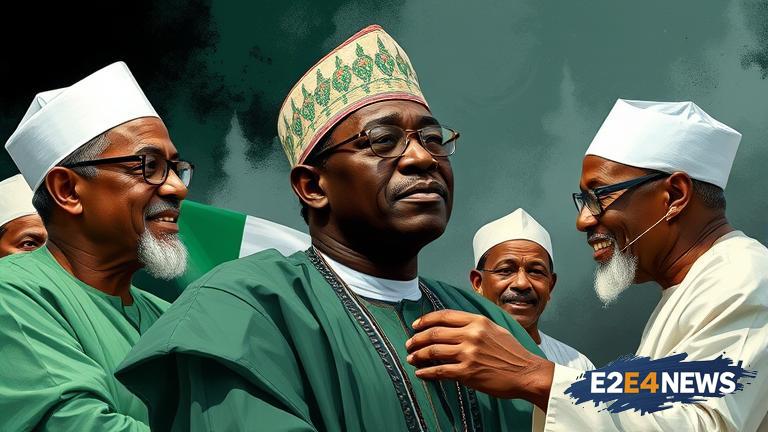The recent passing of President Muhammadu Buhari has sent shockwaves throughout Nigeria, particularly in the northern region where he wielded significant influence. As the country mourns the loss of its leader, a new power struggle has emerged, with several key figures vying for control of the north. At the forefront of this battle are two prominent politicians: Atiku Abubakar and Rabiu Kwankwaso. Both men have a long history of involvement in Nigerian politics and have built substantial followings in the north. Atiku, a former vice president, has been a major player in Nigerian politics for decades, while Kwankwaso, a former governor of Kano State, has built a reputation as a shrewd and cunning politician. The two men have been engaging in a war of words, each attempting to outmaneuver the other in the quest for northern leadership. The north, which has traditionally been a stronghold of the ruling All Progressives Congress (APC), is now up for grabs, and the battle for control is intense. The region is home to a diverse array of ethnic and religious groups, and any potential leader will need to navigate these complex dynamics in order to emerge victorious. Atiku, who hails from Adamawa State, has been courting support from various northern factions, including the Arewa Consultative Forum and the Northern Elders Forum. Kwankwaso, on the other hand, has been focusing on building alliances with key stakeholders in the region, including traditional rulers and religious leaders. The battle for northern leadership is not just about personal ambition; it also has significant implications for the future of Nigerian politics. The north has long been a dominant force in Nigerian politics, and whoever emerges as the leader of the region will play a crucial role in shaping the country’s future. The APC, which has been struggling to maintain unity in the face of Buhari’s passing, is watching the developments in the north with great interest. The party is aware that the north is a critical component of its support base, and any loss of influence in the region could have significant consequences for its future prospects. As the battle for northern leadership continues to unfold, it is clear that the stakes are high. The outcome will not only determine the future of the north but also have a profound impact on the trajectory of Nigerian politics as a whole. The international community is also watching the situation closely, aware of the potential implications for regional stability and security. Nigeria is a key player in West African politics, and any instability in the country could have far-reaching consequences for the region. In the midst of this uncertainty, one thing is clear: the battle for northern leadership will be a defining moment in Nigerian politics, one that will shape the course of the country’s history for years to come. The people of Nigeria, particularly those in the north, are eagerly awaiting the outcome, aware that the future of their region and their country hangs in the balance. As the situation continues to evolve, it is likely that new alliances will be formed, and old rivalries will be rekindled. The north, with its rich cultural heritage and complex political landscape, is a region that is both fascinating and unforgiving. Only time will tell who will emerge victorious in the battle for northern leadership, but one thing is certain: the consequences of this struggle will be felt for generations to come. The legacy of President Buhari will also be an important factor in the battle for northern leadership, as his supporters and allies will be looking to protect his interests and maintain his influence in the region. The death of President Buhari has created a power vacuum, and the battle for northern leadership is a testament to the enduring nature of his legacy. As the people of Nigeria mourn the loss of their leader, they are also aware that the future of their country is at stake, and the battle for northern leadership is just the beginning of a new chapter in Nigerian politics.
